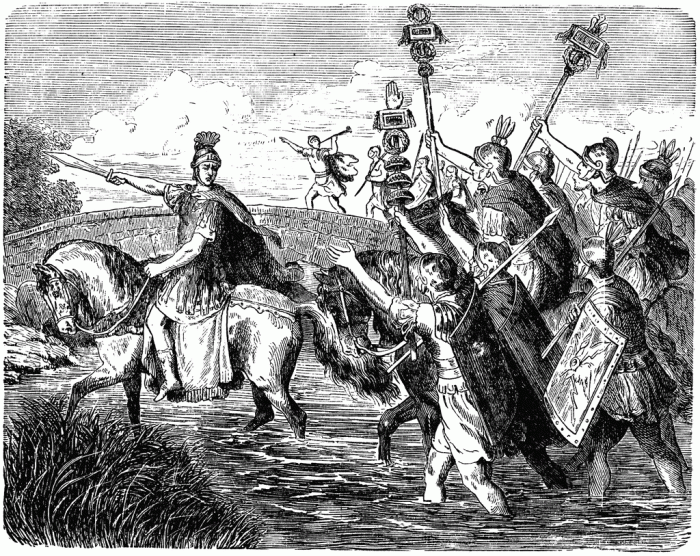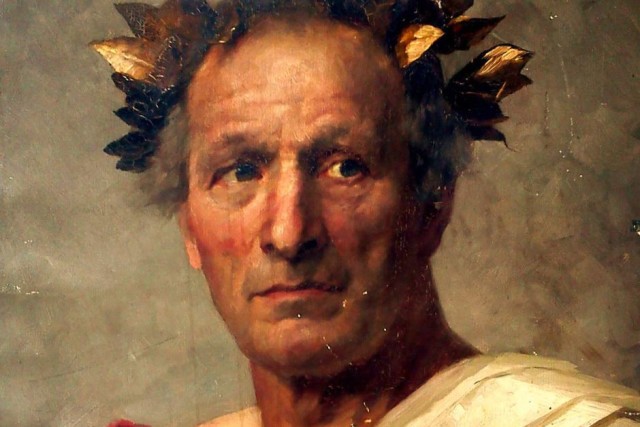The Battle of Dyrrhachium was one of the greatest risks taken by Julius Caesar in his war with Gnaeus Pompey, who was allied with almost the entire Senate. The two ancient leaders fought against each other for absolute power over the Roman Republic.
In Dyrrhachium, what is today’s Drach, Albania, Pompey won, while Caesar barely escaped from a catastrophic defeat. A month later, the war between the Optimates and the Populares in the Battle of Pharsalus was over, with a complete victory for Gaius Julius Caesar and his allies.
Once Caesar had defeated the lieutenants of Pompey in Spain and stabilized his power there he left Italy and crossed the Rubicon in order to attack Pompey. During that time, Pompey crossed the Adriatic and built his camp in Greece. Caesar, however, lacked enough ships to transport all his legions at the same time.
When he crossed the Adriatic for the first time on January 4, 48BC, he occupied the city of Orikum and the port-city of Apollonia. There, he was to wait for his ships to return with the rest of his legions.
His general Mark Antony traveled with the rest of the forces Caesar was waiting for. Anthony managed to successfully evade the republican navy of Marcus Calpurnius Bibulus. Bibulus, a general of Pompey, was sent with the mission to destroy or at least stop Mark Antony from rejoining Caesar.
Bibulus was ordered by Pompey to patrol across the Ionian Sea, as they saw this as the possible route Caesar’s ships would take. The harsh winter made Mark Antony to go off route and his ships had to anchor further north at Epirus. Nevertheless, the winter was not merciful with Caesar’s legions and many ships were sunk in the stormy waters.
Pompey knew that the army of Caesar would not stay separated for long, so decided to intercept Mark Antony on his way to rejoin with Caesar at Dyrrhachium. Even though Pompey was in a hurry to catch Mark Antony unprepared, he still had to maneuver between the two armies, for there was a chance he would be the one caught off-guard.
Pompey himself had only part of his forces with him, the rest being in another region. Because of this, he failed to successfully block Antony, while trying to evade Caesar. That gave Caesar the opportunity to continue to Dyrrhachium, where he was to reunite his forces.
The Siege and the Hunger
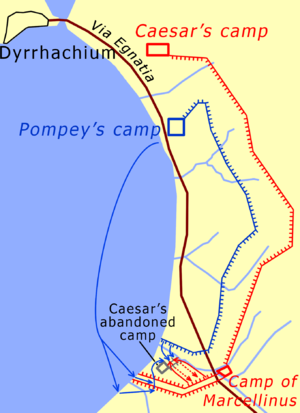
In the end, the rival armies managed to get on to the two coastlines of the Dyrrhachium river, where the city was on Caesar’s side of the coast. With Pompey and his men on the southern bank, Caesar set his camp on the northern one. At that point, Caesar had only 15,000 men and barely 500 man cavalry, while Pompey had the advantage of outnumbering his opponent. Gnaeus Pompey had 45,000 soldiers and few thousand more cavalry.
With Pompey having a strong defensive position on the high ground, Caesar was left with no choice but to repeat his tactics from previous battles and use Pompey’s position against him. He commanded his engineers to build a circumvallation around the camp Pompey’s camp, blocking his army from moving forward, which meant the only option for Pompey was the Ionian Sea behind him.
Gnaeus Pompey’s response was the building of fortifications and walls around the camp, with which he could stop the advance of Caesar and his forces. Taking as much of the high ground as he could, Pompey sent light infantry to guard the fortifications. At some point, however, Pompey’s strong position began to turn against him.
Before the siege, he had seized the valley’s scarce food sources, but Caesar’s struggle for supplies and food for his men was ending. The land began to flourish and the army would soon have enough food to continue their mission. Pompey’s survival issues were just starting. Supplies could be delivered to the camp by ships only so often, and his men had no fresh water source or grassland for the horses.
The lack of fodder took its toll on Pompey and he was impatient to break the siege. The summer was at its peak, when Pompey had the luck that two Gallic spies entered his camp. They provided Gnaeus Pompey with the much-needed information that would help him break through the siege and Caesar’s wall.
The Battle
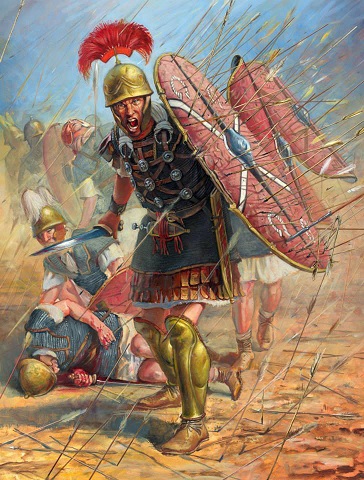
Knowing the weak points of Caesar’s defense, Pompey gave a command to his men to attack the forces of the enemy. To the south, where Caesar’s camp line connected with the Sea, the constructions were still unfinished and it gave the perfect opportunity for Pompey to strike.
At this spot, Caesar had stationed his IX Spanish Legion. Pompey used the advantage even further and ordered some of his forces to launch an attack by sea. Caesar’s men were decisively outnumbered and Pompey’s infantry easily broke through the weakened defense line and forced the Caesarean troops to fall back.
Reacting to the heavy breach in his camp, Caesar sent Mark Antony and his twelve cohorts to aid the defenders. Mark Antony’s counterattacks helped Caesar take control of the wall and to push the Pompeian troops off their ground.
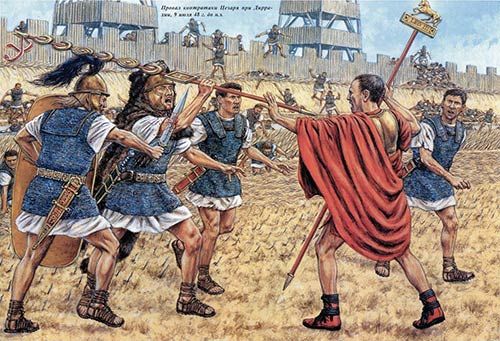
Pompey’s response was quick: he rounded Caesar’s right wing with 3,000 cavalry. Soon after the Caesarean right wing was routed the troops, facing certain demise, started to panic and broke their lines. Caesar realized he had lost and began to swiftly coordinate the retreat of his men.
“Today the victory had been the enemy’s, had there been any one among them to gain it.” – Caesar
In his withdrawal, Caesar headed to the city of Gomphi, but the citizens neglected their alliance with the Roman leader and took the side of Pompey, and locked the doors to the city. Infuriated, Caesar took the city by force, massacred the citizens and took all its goods and food. Pompey’s decision, not to follow and destroy Caesar out of fear, was critical. With this action, he gave Caesar the opportunity to regroup and afterward win the decisive battle at Pharsalus.
